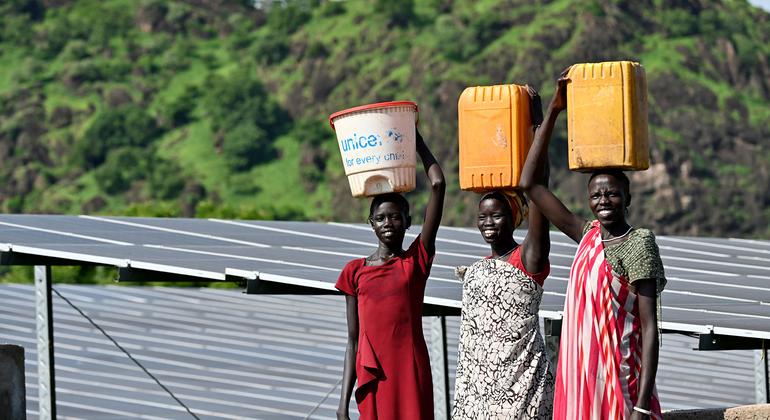Here’s the translation into American English:
—
The World Health Organization (WHO) has revealed that approximately 2.2 billion people worldwide still lack access to safely managed drinking water services. This alarming situation has become an increasingly urgent challenge, especially at a time when the demand for this vital resource continues to rise. Currently, World Water Week is taking place in Stockholm, Sweden, an initiative that highlights the crucial relationship between water and global warming, under the motto “Water for Climate Action.”
Access to safe drinking water is not only essential for the health of ecosystems, but it is also fundamental for socio-economic development and the production of energy and food. WHO emphasizes that a reliable water supply is critical for adaptation efforts in a planet facing accelerated warming.
The most remote communities, particularly in landlocked developing countries, face additional challenges, but these also represent opportunities to improve the lives of their inhabitants. In this context, UN-Water is organizing a meeting this week where landlocked developing countries that have made significant progress in ensuring the availability and sustainable management of water and sanitation will come together, aligning with the Sustainable Development Goals (SDGs).
During this session, nations with similar circumstances will have the opportunity to learn from the experiences of countries like Bhutan, Rwanda, and Saudi Arabia, which have successfully implemented effective models for drinking water management.
Moreover, the lack of access to safely managed water, sanitation, and hygiene services has a profound impact on human well-being and dignity, particularly for women and girls. Contaminated water and poor hygiene practices hinder efforts to eradicate extreme poverty and control disease outbreaks, disproportionately affecting the most impoverished countries.
Awareness of these realities leads UN-Water, along with its partners, to seek to mobilize donors and other key stakeholders on Thursday to address funding shortfalls in water supply and sanitation. Discussions will focus on different models and the creation of partnerships to promote innovative financing mechanisms that ensure universal and safe access to drinking water.
Referrer: MiMub in Spanish











